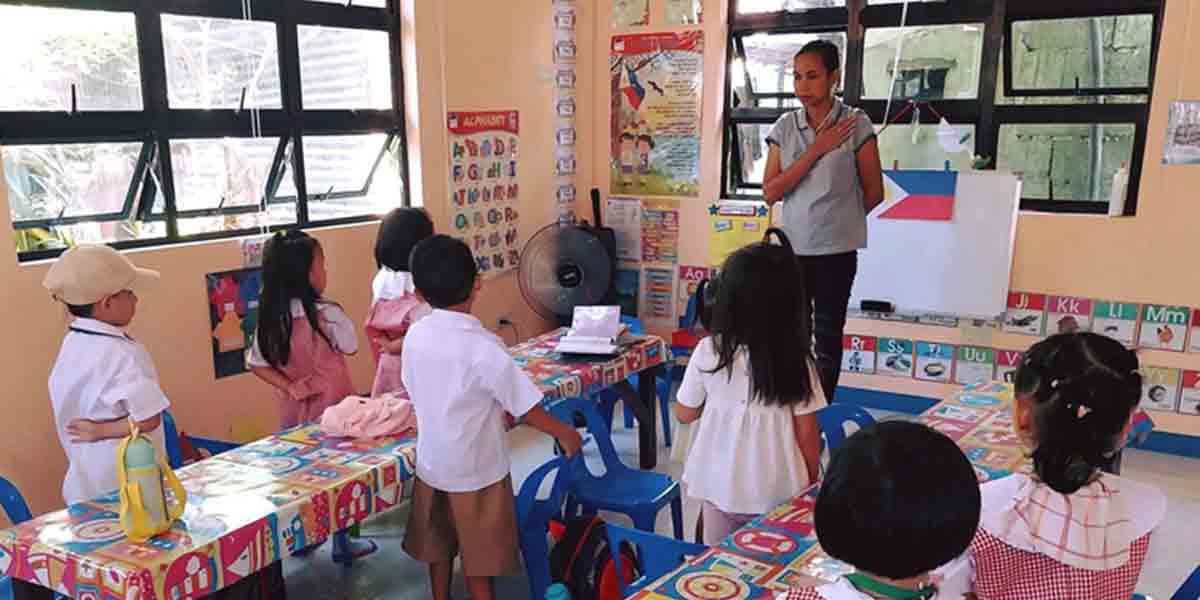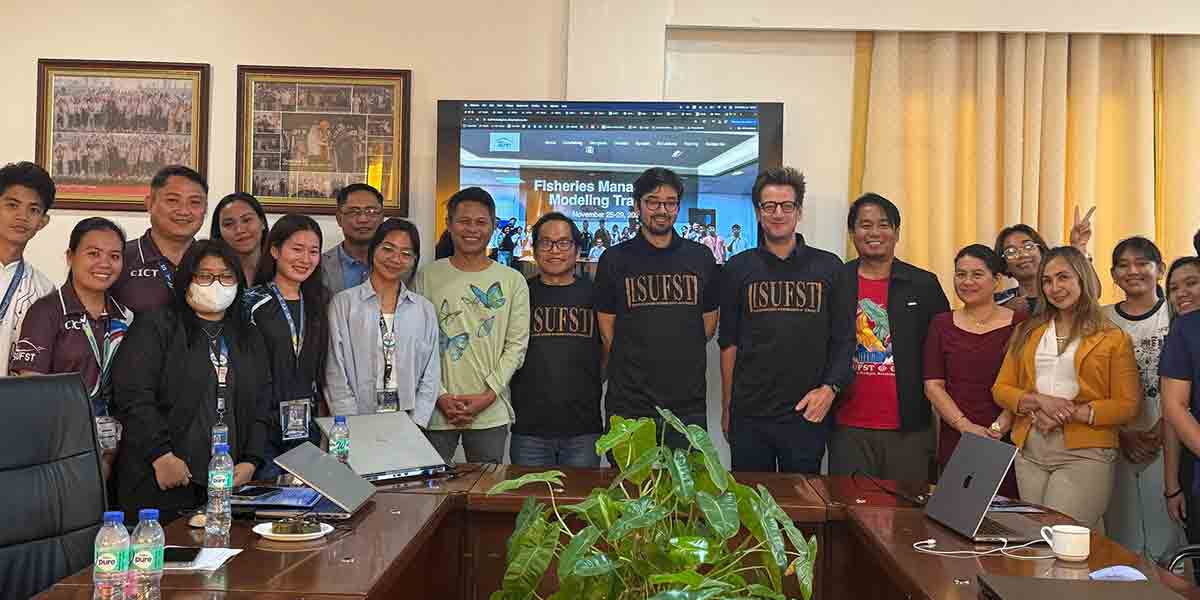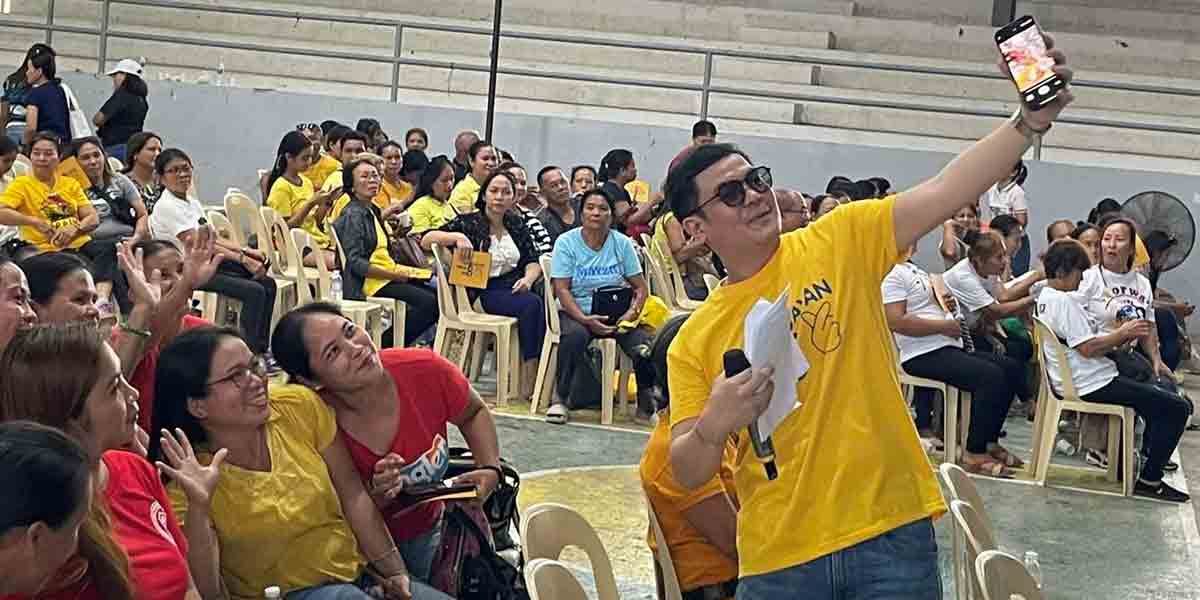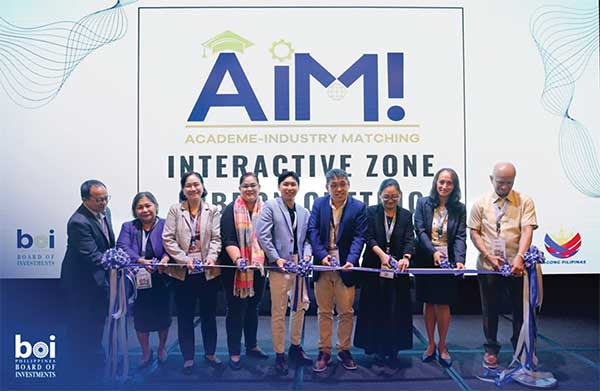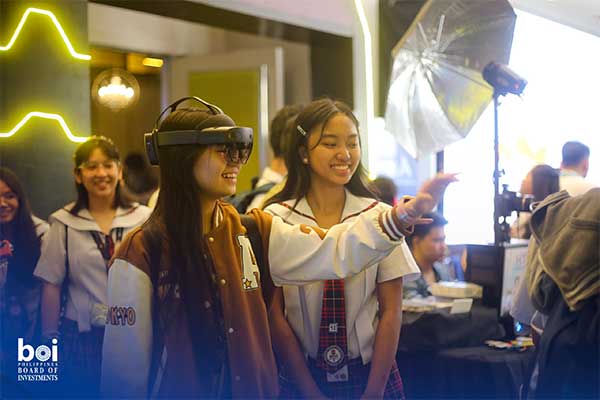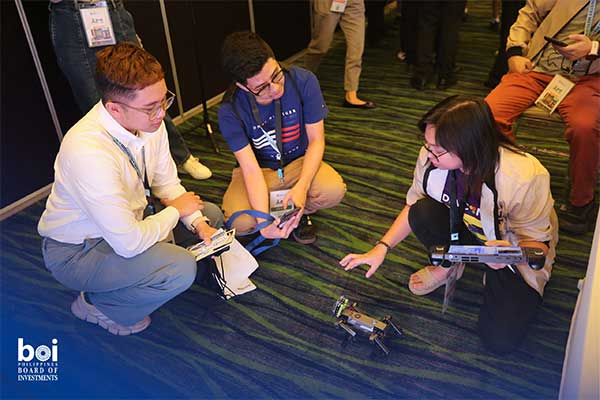The Board of Investments (BOI) launched its flagship Academe-Industry Matching (AIM!) Program on November 25, 2024, highlighting the importance of collaboration between the academe and industries to address workforce development challenges.
The event, attended by over 300 participants, brought together leaders from government, private sectors, educational institutions, and development partners in a joint effort to align educational programs with the needs of emerging industries.
The AIM! Program aims to establish a collaborative platform that bridges the gap between academic curricula and industry needs to produce a job-ready workforce. With the Philippines generating around 800,000 college graduates annually, the program focuses on equipping students with skills for high-value industries, including aerospace, information technology, semiconductors, automotive, renewable energy, chemicals, and telecommunications.
In her opening remarks, Department of Education Undersecretary Fatima Panontongan emphasized the importance of ensuring graduates are workforce-ready.
“According to the Philippine Institute for Development Studies (PIDS), only 20% of our senior high school graduates have joined the workforce, and an equally small percentage of companies are open to hiring them,” Panontongan said. “These numbers reveal an important truth: hindi sapat ang puwede na, kailangang handang-handa ang kabataang Pilipino. This is where the AIM! Program by BOI comes in. It represents a concrete step to address skills mismatches and create clear pathways to employment.”
Legislative Support and Talent Development
Adding a legislative perspective, Congressman Ron Salo of Kabayan Partylist emphasized the program’s potential to resolve labor market challenges.
“This is a purposive and strategic step in developing our Filipino talents,” Salo said. “Through programs like AIM!, we are connecting key sectors, addressing workforce gaps, and championing human capital.”
As the author of the Transnational Higher Education (TNHE) Act, or Republic Act No. 11448, Salo highlighted how TNHE provides globally recognized education programs locally, mitigating brain drain and addressing talent shortages.
A Comprehensive Vision for Workforce Readiness
BOI Executive Director Ma. Corazon Dichosa provided an overview of the AIM! Program, which is a multi-sectoral platform designed to align education with industry demands.
“It’s a collaboration that ensures a future-ready workforce equipped with the skills needed by emerging industries,” Dichosa said.
The plenary session, featuring key industry leaders, further explored collaborative solutions to the country’s skills gap. Discussions focused on preparing the workforce for future needs while addressing immediate challenges in talent supply.
Interactive Zone: A Hands-On Approach to Learning
One of the highlights of the event was the Interactive Zone, where participants could explore cutting-edge technologies showcased by industry leaders. Students, educators, and technical-vocational participants eagerly tried out innovations in animation, game development, telecommunications, automotive, aerospace, and electronics.
“The hands-on demonstrations in the Interactive Zone gave students a unique perspective on their potential career paths in high-value industries,” said a BOI representative.
These immersive activities allowed learners to directly engage with technologies and interact with industry experts, fostering career awareness and inspiration.
Long-Term Impact on Education and Human Capital
In her closing remarks, Commission on Higher Education (CHED) OPSD Director Aline Magalong stressed the program’s role in empowering individuals and fostering lifelong learning.
“Beyond developing competencies, the goal of education is to empower individuals to take charge of their growth and sense of purpose,” Magalong said. “We aim to develop our graduates as lifelong learners—agile and creative in the face of uncertainty, and capable of thriving and succeeding in the future.”














